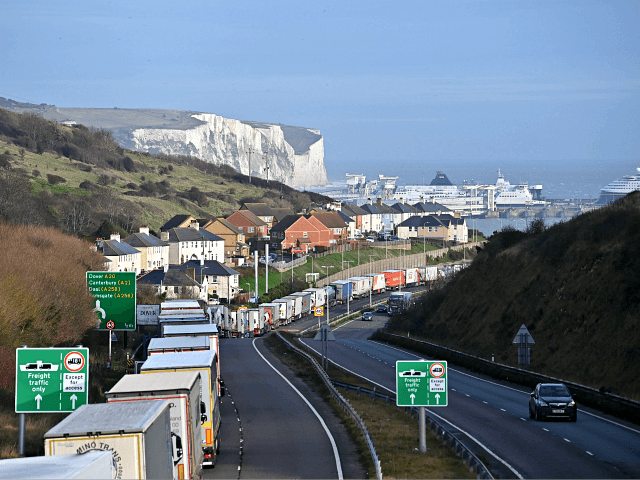The French have banned all accompanied traffic from the United Kingdom after the British government confirmed a new, more contagious strain of the Chinese coronavirus in London and the south-east.
The ban includes drivers carrying freight, although “unaccompanied freight” arriving in containers and so on — which accounts for roughly 80 per cent of all freight, according to Transport Secretary Grant Shapps — should carry on as normal. Travel to Britain from France has not been restricted, although services have been significantly disrupted.
Many countries across Europe have followed France, at least partially, in banning travel from Britain, leaving many stranded in airports overnight in countries such as Germany. So have some countries further afield, such as Canada and Turkey.
All may not be as it seems with respect to the travel bans, however, at least where France and the EU are concerned, with both anti-Brexit and pro-Brexit commentators indicating that it is really about damaging commerce in order to strong-arm the British into signing a disadvantageous trade agreement.
On social media, anti-Brexiteers have, in a curious way, revelled in the reports of disruption and long queues of lorries on Britain’s motorways, suggesting that such is the reality of life on “Brexit Island” — seemingly heedless of the fact that it is happening while Britain is still defacto an EU member, with the 2020 “transition” period not yet over.
Given the new coronavirus strain is already confirmed as being present in Continental Europe, leading Brexiteers seem inclined to agree that it is being exploited to try and give Britain a taste of no-deal blockade — although attempting to keep it going without such an excuse would prove difficult, being against World Trade Organization (WTO) rules and, if the British begin blocking EU accompanied freight as well, highly damaging to EU exporters.
“We are dealing with thugs and bullies who want to make us sign a bad deal,” remarked Brexit leader Nigel Farage.
“Time to walk away, to hell with the EU,” he added.
Brexit negotiations are, somewhat incredibly, still ongoing, with the EU now willing to dispense with the rubber stamp of European Parliament ratification and apply any potential agreement “provisionally”.
The British and EU teams remain at loggerheads largely over the question of fishing, with the EU wanting to maintain its current control over Britain’s national fishing waters as the price of a trade agreement.
Reports indicate that Boris Johnson’s government is willing to betray British fishermen by agreeing to another “transition” period for fisheries, and is now haggling over how long it should last — the EU initially demanded ten years, while the UK offered three; they are now demanding six and offering four, respectively — what quota shares should be, and how much Britain should be compensated for EU catches.

COMMENTS
Please let us know if you're having issues with commenting.